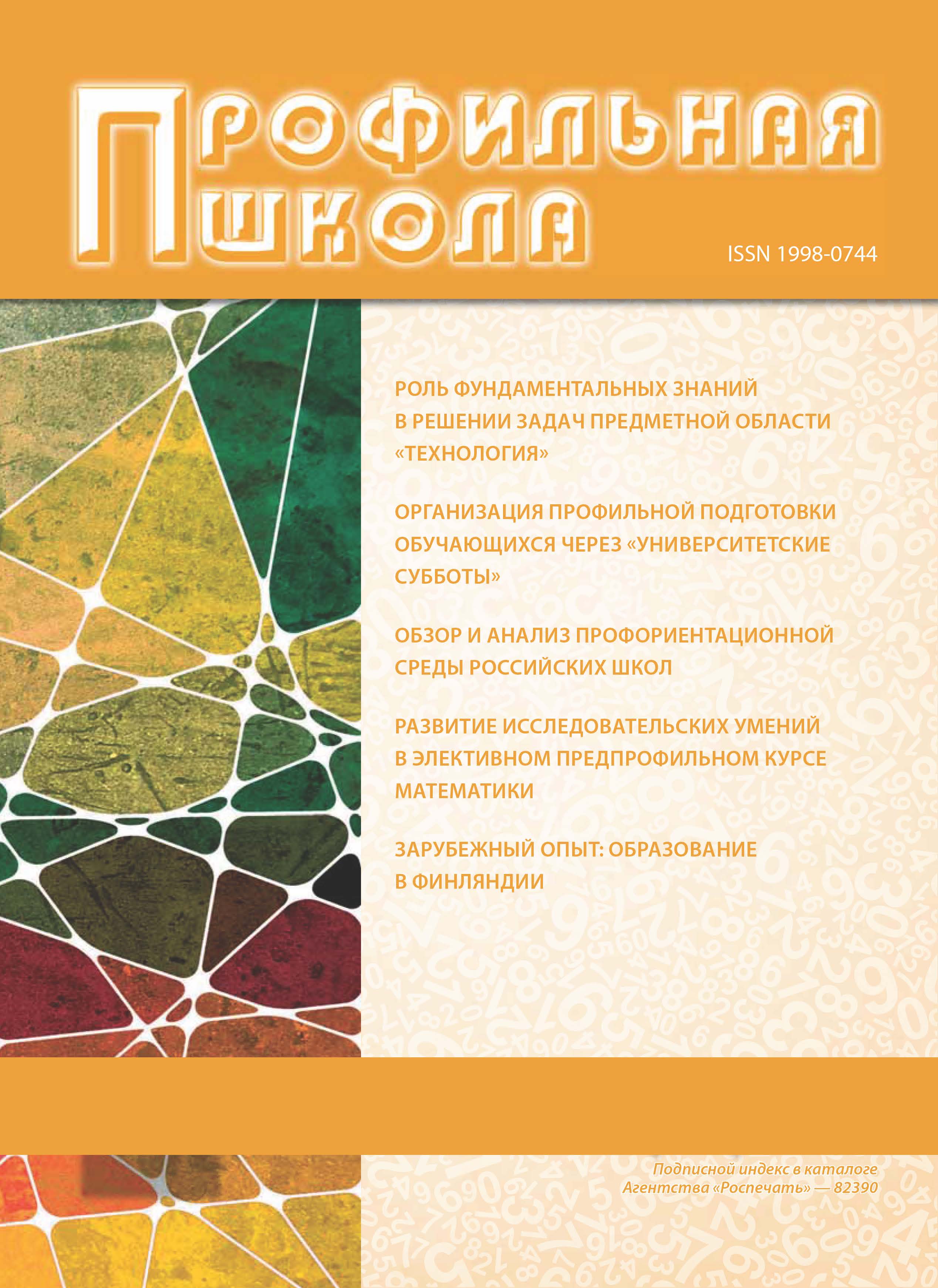The article discusses the features of the implementation of problem-based learning, as the most eff ective for the development of schoolchildren. The features of creating problem situations, tasks for them are noted. It indicates the diff erences between traditional and problem-based learning.
teacher, development, socialization, developmental learning, problem-based learning, problem situation, problem, task, task
1. Ivanova O.A, Yakunina I.I. Ob ispol'zovanii kejs metoda [About the use of the case method]. Himiya v shkole [Chemistry at school]. 2013, I. 2, pp. 17-24. EDN: https://elibrary.ru/PWRJXX
2. Matyushkin M.A. Problemnye situacii v myshlenii i obuchenii [Problem situations in thinking and learning]. Moscow: Pedagogika Publ., 1972. 208 p.
3. Mahmutov M.I. Princip problemnosti [The principle of problem]. Enciklopediya professional'nogo obrazovaniya [Encyclopedia of vocational education]. Moscow: APO Publ., 1999, pp. 311-314.
4. Mahmutov M.I. Problemnoe obuchenie. Osnovnye voprosy teorii [Problematic training. The main issues of the theory]. Moscow: Pedagogika Publ., 1975. 368 p.
5. Okon' V. Osnovy problemnogo obucheniya [Fundamentals of problem-based learning]. Moscow, 1968. 208 p.
6. Problemnoe obuchenie: proshloe, nastoyashchee, budushchee [Problematic education: past, present, future]. Nizhnevartovsk: Nizhnevartovskij gumanitarnyj universitet Publ., 2010.
7. Shevchenko N.I. Pedagogicheskie tekhnologii: socializaciya shkol'nikov na urokah obshchestvoznaniya [Pedagogical technologies: socialization of schoolchildren in social studies]. Moscow: Russkoe slovo Publ., 2012. 206 p.






